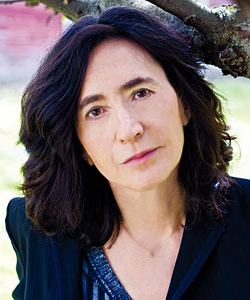
I say, "Stop me if you've heard this before." Every time I mean a girl named Maisie, I just use the word I. Now I can basically tell it as if it had happened to someone else, to a girl named Maisie who had a bad experience on a school bus. In the beginning, it was really embarrassing. To Joan and to the principal, to the school administration, and to Cynthia, our lawyer. "I think it could be really helpful at this point.

Outside the window behind her chair, it's winter, winter, winter. It's something she says so often, I'm almost starting to believe it. "Don't be like that," Doctor Atwood says. Whether it happened exactly that way or not. People tell themselves a story about what happened, and they start to believe the story, and then they start thinking that the story is what actually happened. "Because the fact is, Maisie, I think you believe what you're saying happened. "I'm not saying I don't believe you," says Doctor Atwood. " Revisit as in you want me to tell you the story that I've already told a million times because you don't believe me? I thought you were supposed to believe me. But as the story spreads, different versions of the event multiply with every retelling, until even Maisie loses her grip on the truth.ĭoctor Atwood says, "Maisie, do you think we could revisit the incident on the bus?"

Administrators and psychologists join in the fray, and Maisie's stepmother wants to initiate legal action. Three of Maisie's male friends grope her, and soon enough, the whole school finds out.

"The book is about - as much as it is about anything - the shock of finding yourself suddenly a different person, even though you think of yourself as the same person," Prose tells Melissa Block, "and how startling it is to realize you're living in a different body than you had six months before."Īt the novel's center is an incident that takes place in the back of a school bus. Maisie is going through puberty, and her developing body attracts a different kind of attention from boys who used to be just playmates. The novel's protagonist, 14-year-old Maisie Willard, returns home to her father and stepmother noticeably changed after spending her eighth-grade year living with her mother in another state. Francine Prose's latest young adult novel, Touch, chronicles one girl's difficult passage from childhood to maturity.


 0 kommentar(er)
0 kommentar(er)
